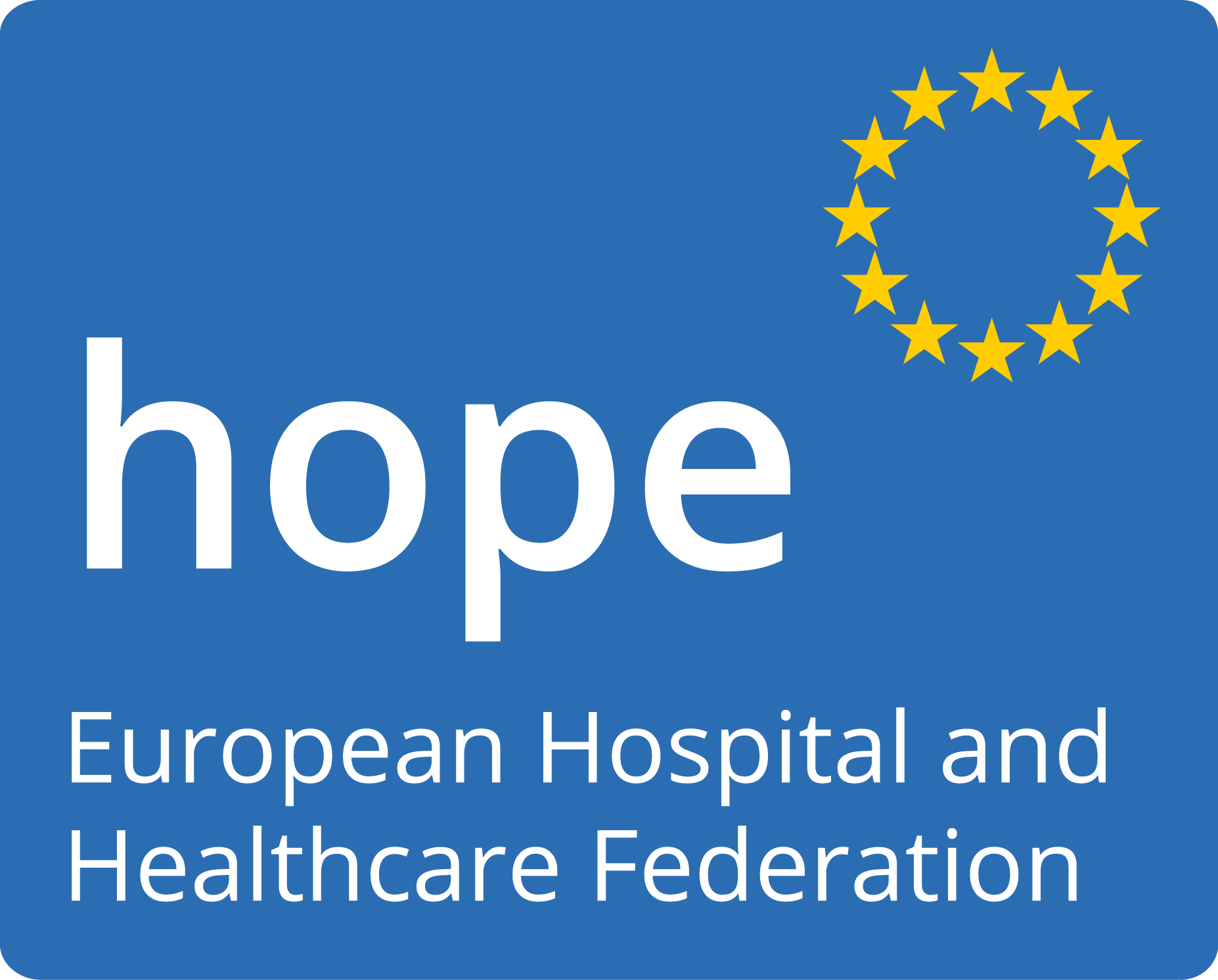eHealth is the use of information and communication technologies (ICT) for health. Examples include treating patients, conducting research, educating the health workforce, tracking diseases and monitoring public health (WHO). Telemedicine and mHealth are components of eHealth. Whether eHealth tools are used by healthcare professionals, or directly by patients, they play a significant role in improving the health of European citizens.
HOPE has been regularly active in eHealth as a member of the eHealth Stakeholder Group (eHSG). Established by the Commission in 2012 and renewed in 2016 and in 2020, this group currently comprises 40 European umbrella organisations representing different groups like health professionals and managers, patients and consumers, industry, and standardisation bodies. Its aim is to ensure an informed dialogue with the European Commission and to add value to policy design and implementation.
On 20 July 2017, the European Commission had launched the public consultation on digital transformation on health and care to which HOPE contributed.
On 25 April 2018, the Commission released a Communication on enabling the digital transformation of health and care in the Digital Single Market; empowering citizens and building a healthier society.
In response to this Communication, HOPE released a Position Paper in which it advocated that there is a need for further EU action in this area but that the Commission Communication does not bring a clear added-value. Its one-fits-all approach, its lack of clarity regarding the sharing of health data or the concrete means that could be set to mobilise resources for eHealth cooperation and the limited representativeness of the survey it is based on are many elements that leave room for improvement.
On 7 February 2020 the Commission announced new member organisations of the eHealth Stakeholder Group 2020-2022. HOPE application has been accepted, alongside with other umbrella organisations/associations with a European outreach, representing the following sectors/groups: the Health Tech industry, patients, healthcare professionals and the research community.
On 19 February 2020, the Commission released the “Shaping Europe’s digital future” Communication for “a digital transformation that works for all”. The European data strategy and the policy options to ensure the human-centric development of Artificial Intelligence (AI) were presented.
On 9 June 2020, the Council adopted conclusions on shaping Europe’s digital future, addressing a wide range of issues related to the implementation of the EU digital strategy. The areas covered by the conclusions range from connectivity, digital value chains and eHealth to the data economy, artificial intelligence and digital platforms. The text also highlights the impact of the digital transformation on fighting the pandemic, and its critical role in the post-COVID-19 recovery.
On 9 March 2021, the European Commission released a Communication “Europe’s Digital Decade: Commission sets the course towards a digitally empowered Europe by 2030“. It responds to the European Council’s call for a ‘Digital Compass’; and builds on the Commission’s digital strategy of February 2020. The Communication proposes to agree on a set of digital principles, to rapidly launch important multi-country projects, and to prepare a legislative proposal setting out a robust governance framework, to monitor progress – the Digital Compass. On 12 May 2021, the Commission launched a public consultation on the formulation of a set of EU digital principles.
On 15 September 2021, following Ursula von der Leyen’s State of the Union address, the European Commission released a proposal for a Path to the Digital Decade, a concrete plan to achieve the digital transformation of the society and economy by 2030. On the 16 September, the Commission opened a consultation on this proposal, open for feedback until 17 November 2021.
Regarding health more specifically, few elements of the proposal can be underlined:
– digitalisation of public services: a. 100% online accessible provision of key public services for Union citizens and businesses; b. 100% of Union citizens have access to their medical records (electronic health records (EHR)); c. at least 80% of Union citizens use a digital identification (ID) solution.
– transparency and public participation: close cooperation and consultation of stakeholders including private and public actors, such as bodies governed by public laws of the educational or health sector
– access: ensure that democratic life, public services and health and care services are accessible online for everyone, in particular disadvantaged groups including persons with disabilities, offering inclusive, efficient and personalised services and tools with high security and privacy standards.
In relation with eHealth, HOPE also works on the following issues:
EU projects
HosmartAI
Hospital Smart development based on AI
RE-SAMPLE
REal-time data monitoring for Shared, Adaptive, Multi-domain and Personalised prediction and decision making for Long-term pulmonary care Ecosystems
SPHINX
A Universal Cyber Security Toolkit for Health-Care Industry
TeNDER
affecTive basEd iNtegrateD carE for betteR Quality of Life
ICT4Life
ICT services for Life Improvement for the Elderly
eStandards
eHealth Standards and Profiles in Action for Europe and Beyond
eHGI
eHealth Governance Initiative
SEGHovIA
Supporting the European eHealth Governance Initiative and Action
MOMENTUM
European Momentum for Mainstreaming Telemedicine Deployment in Daily Practice
AgeingWell
Network for the Market uptake of ICT for Ageing Well
